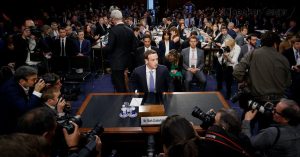In a surprising move that has captured attention across the globe, Mark Zuckerberg, the CEO of Meta, which owns Facebook and Instagram, has announced the termination of the independent fact-checking program on their platforms. This change is leading to concerns about the spread of misinformation online, sparking debates over the responsibilities of social media companies in today’s digital world.
Mark Zuckerberg’s Announcement
On Tuesday, Zuckerberg shared the news that Meta will no longer partner with independent fact-checkers. Instead, he expressed that there has been too much censorship. He highlighted that this decision is a course correction from their previous policy where, back in 2016, he had pledged to fight misinformation and support fact-checking efforts.
A Shift in Political Alignment
This announcement is seen as part of a broader evolution in Zuckerberg’s political stance. Recently, he has been associated with actions that seem to favor the political right. For example, in July 2023, Zuckerberg praised actions taken by former President Donald Trump and lifted certain restrictions on Trump’s social media accounts following the Capitol unrest on January 6, 2021. Such moves suggest a warming relationship between Meta and Trump, reflecting a significant change in how Zuckerberg perceives the role of his platform in political discussions.
Previous Stance on Misinformation
It’s essential to look back at Zuckerberg’s previous commitments to combating misinformation. In 2016, after facing backlash over the spread of false news stories on Facebook, he promised to work alongside fact-checkers to ensure accurate information reached users. But with this new announcement, it appears that Zuckerberg is prioritizing a broader interpretation of free speech over fact-checking.
Permitting Controversial Content
Zuckerberg’s recent actions indicate a notable change in Meta’s approach to content moderation. The company is shifting its focus to prioritize the removal of illegal content while allowing more controversial topics, like discussions around politics or immigration, to flow freely. This could open the door for more misleading information to spread rapidly across its platforms, raising alarms among experts who study disinformation.
Reactions from the Public and Experts
The decision to end fact-checking has drawn criticism from various quarters. Many digital literacy experts and activists are warning that this could lead to an increase in harmful misinformation, particularly during election periods when accurate information is crucial. They have voiced concerns about the potential consequences of a less moderated environment on platforms that are used by billions of people.
The Future of Content on Meta Platforms
As Zuckerberg moves forward with these changes, the future of content moderation on Meta’s platforms remains uncertain. Users and advocacy groups are keenly observing how these new policies will shape online discourse. Will they introduce a new wave of misinformation or pave the way for more open conversations? Only time will tell.
| Event | Date | Impact |
|---|---|---|
| Fact-Checking Program Ended | February 2024 | Increased risk of misinformation |
| Zuckerberg Praises Trump | July 2023 | Shift towards right-wing support |
| Content Moderation Policy Change | February 2024 | Less censorship on various topics |
In the coming months, Zuckerberg’s moves will certainly continue to be a hot topic as people pay close attention to how Meta navigates these changes. With the balance of free speech and responsible content moderation at stake, everyone is watching to see what developments unfold next.





